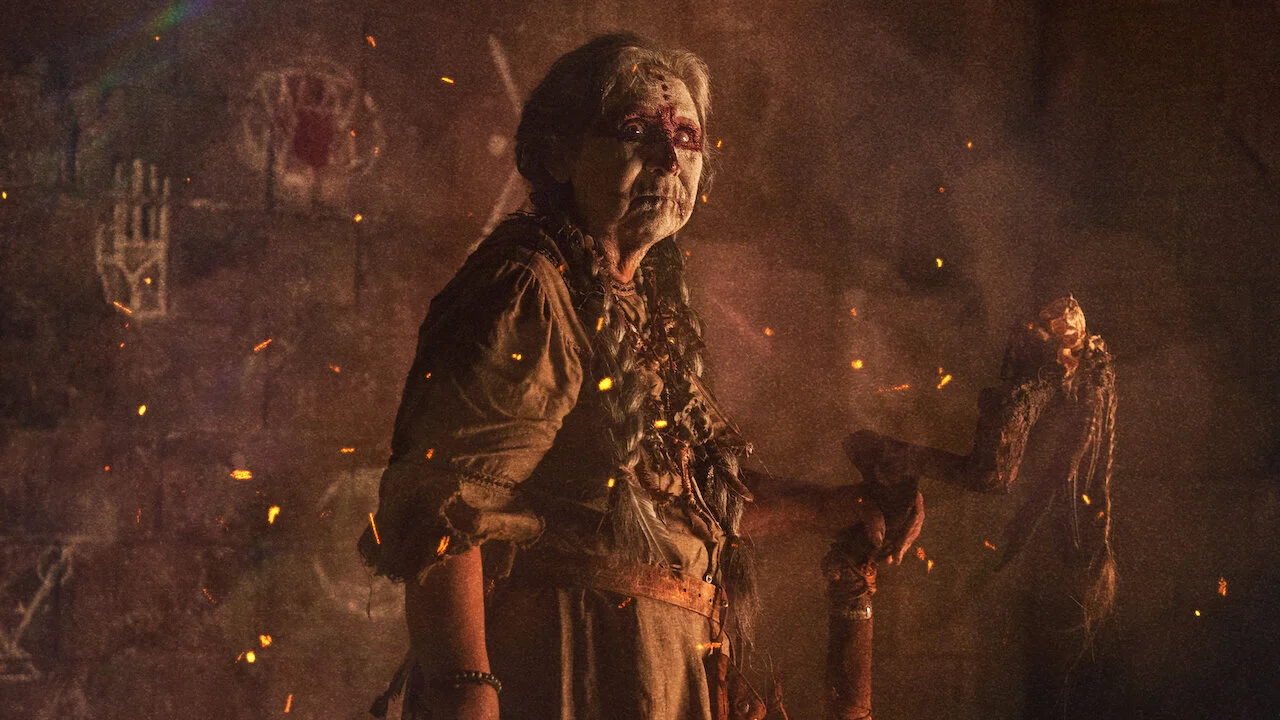Halloween Horror: Inferno (1980)
Dario Argento’s Inferno acts as a spiritual sequel to Suspiria, his iconic, colourful horror film about a young woman who falls prey to a witch’s coven at a ballet school in Freiburg. It’s set in the same universe as Suspiria, developing the concept of the Three Mothers that Argento borrowed from Thomas De Quincey’s essay Suspiria de Profundis. It features the same beautifully colourful cinematography, with Argento draping every wall or floor with vibrant red, blue, and green light. And it has much the same atmosphere as it follows another young innocent stumbling across the sinister world beneath their domestic life. But where Suspiria has a central character who shepherds us into the world of the film, Inferno has several, which splits the narrative and robs the film of momentum. Ultimately, despite a considerable amount of style, the narrative feels slapdash and of secondary concern.
The film begins in New York, where the solitary poet, Rose Elliot (Irene Miracle), learns about the existence of three supernatural beings from an old book she’s reading. According to the book, entitled The Three Mothers, there are three sisters that rule the world: Mater Suspiriorum, Mater Lachrymarum, and Mater Tenebrarum, who live in Freiburg, Rome, and New York, respectively. Rose becomes convinced that the old building she’s living in is the home of one of the sisters from the book and she investigates the rickety old corridors of the building, using the book as a guide. Predictably, things don’t go well. She writes to her brother, Mark, who is living in Rome, and when he comes home, he discovers that her worries are more than the result of an overactive imagination.
Much of Inferno has Rose and Mark separately descending into the bowels of old buildings and searching for clues in old books, trying to decipher the riddle behind the unease they’re experiencing. As the title suggests, the film is essentially a descent into a metaphorical hell, where the evils of reality are laid bare. The entire setup is intriguing to anyone with an interest in the occult or esoteric mysteries, but it’s too bad the mystery isn’t more developed. I found myself missing the complicated plotting of Deep Red, even if the atmosphere of Inferno is exceptional throughout.
The biggest issue with Inferno is that it cannot settle on a core protagonist. Initially, Rose seems to be the main figure of interest, but suddenly we switch to Mark’s point-of-view and have to double-back over ground that Rose explores earlier in the film. There are segments that follow various side characters, who are usually brutally murdered in sudden, inventive ways. But we never learn much about these characters or are invited to go in-depth into their own investigations. The gruesome set pieces keep getting in the way. It’s fun to watch someone get attacked by a horde of rats in Central Park or get decapitated by a sharp window like it’s a guillotine, but each kill serves to sever that plot thread from the rest of the film, abruptly killing whatever momentum had been gained.
Thus, most of the pleasures of Inferno are in the formal experience. Argento is about as colourful a horror filmmaker as ever existed. He loves splashing colour across the frame and favours bright red blood, garish outfits, and kaleidoscopic horror scenes. Most moments in his films aren’t scary, but they sure are moody. An early scene where Rose has to dive into a flooded ballroom of the building to retrieve her lost keys is about as scary as the film gets, but even then, it’s mostly just visually fascinating, as she swims through the aquamarine water and stumbles across a hideously decaying corpse. Keith Emerson’s keyboard and synthesizer score adds to the eery cool of it all. Most horror movies, even better ones, cannot conjure the same visual atmosphere.
Inferno is more a series of aesthetically-gorgeous set pieces than a satisfying narrative. It hints at fantastical story elements, but can never realize them fully. Thus, it lacks the cohesion of Suspiria, but as far as mood pieces go, it’s still got plenty to recommend it.
6 out of 10
Inferno (1980, Italy)
Directed by Dario Argento; written by Dario Argento, based on the essay Suspiria de Profundis by Thomas De Quincey; starring Irene Miracle, Leigh McCloskey, Eleonora Giorgi, Daria Nicolodi, Sacha Pitoëff, Alida Valli, Veronica Lazar.



Kiyoshi Kurosawa’s horror drama is a quiet film with a haunting effect that’s as disturbing as anything you’ll find in horror cinema.